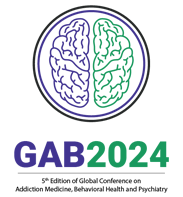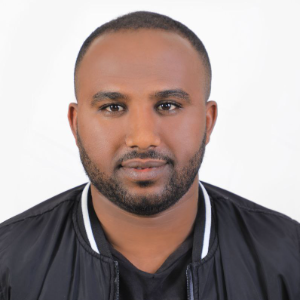Title : The impact of social media addiction on mental health and well-being
Abstract:
Background: In the digital age, social media has become an integral part of daily life, offering various benefits such as connectivity, information access, and entertainment. However, its pervasive use has also given rise to a significant concern: social media addiction. This phenomenon, characterized by excessive and compulsive use of social media platforms, has been linked to adverse mental health outcomes. This research aims to explore the extent of social media addiction and its impact on mental health and well-being.
Objective: The primary objective of this study is to investigate the correlation between social media addiction and mental health issues, including anxiety, depression, and low self-esteem. Additionally, it seeks to identify demographic variables that may influence susceptibility to social media addiction and its psychological consequences.
Methods: A mixed-methods approach was employed, combining quantitative surveys and qualitative interviews. The quantitative component involved a structured questionnaire administered to 500 participants aged 18-35, assessing their social media usage patterns, addiction levels (using the Social Media Addiction Scale), and mental health status (using the DASS-21 scale for depression, anxiety, and stress). The qualitative component included in-depth interviews with 20 participants who reported high levels of social media addiction to gain deeper insights into their experiences and coping mechanisms.
Results: Preliminary findings indicate a significant positive correlation between social media addiction and symptoms of anxiety and depression (p < 0.05). Participants with high addiction scores reported spending an average of 6 hours per day on social media, experiencing sleep disturbances, and feeling overwhelmed by social comparison. Qualitative data revealed that individuals often use social media as a coping mechanism for stress, yet it paradoxically exacerbates feelings of loneliness and inadequacy.
Discussion: The results underscore the dual-edged nature of social media as both a social tool and a potential source of mental distress. The study highlights the need for integrative approaches to address social media addiction, incorporating psychological interventions, digital literacy education, and behavioral strategies to promote healthier usage patterns.
Conclusion: Social media addiction is a pressing mental health issue that warrants comprehensive attention. By understanding its impact on mental health and identifying effective coping strategies, mental health professionals can better support individuals struggling with this modern-day addiction. Future research should focus on longitudinal studies to examine the long-term effects of social media addiction and the efficacy of targeted interventions.
Audience Take Away Notes:
- Understanding Social Media Addiction: Audience members will gain a comprehensive understanding of social media addiction, its defining characteristics, and its prevalence among young adults.
- Mental Health Correlations: The presentation will elucidate the significant correlations between social media addiction and mental health issues such as anxiety, depression, and low self-esteem.
- Demographic Influences: Insights into how various demographic factors, such as age and gender, influence susceptibility to social media addiction and its psychological impacts.
- Coping Mechanisms: An exploration of coping mechanisms used by individuals with high levels of social media addiction, and the paradoxical effects these mechanisms can have on mental health.
- Intervention Strategies: Practical strategies for addressing social media addiction, including psychological interventions, digital literacy education, and behavioral modifications.



